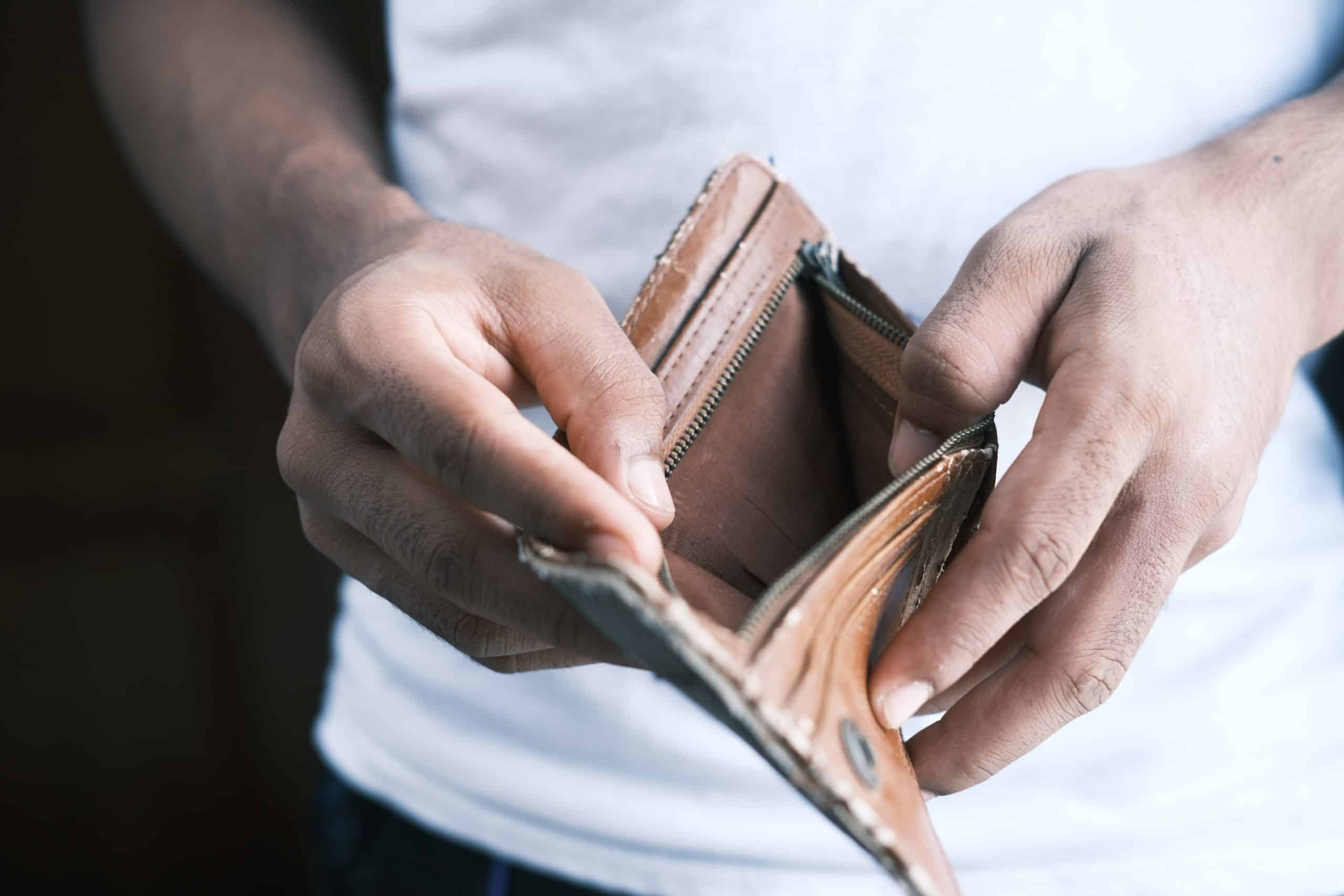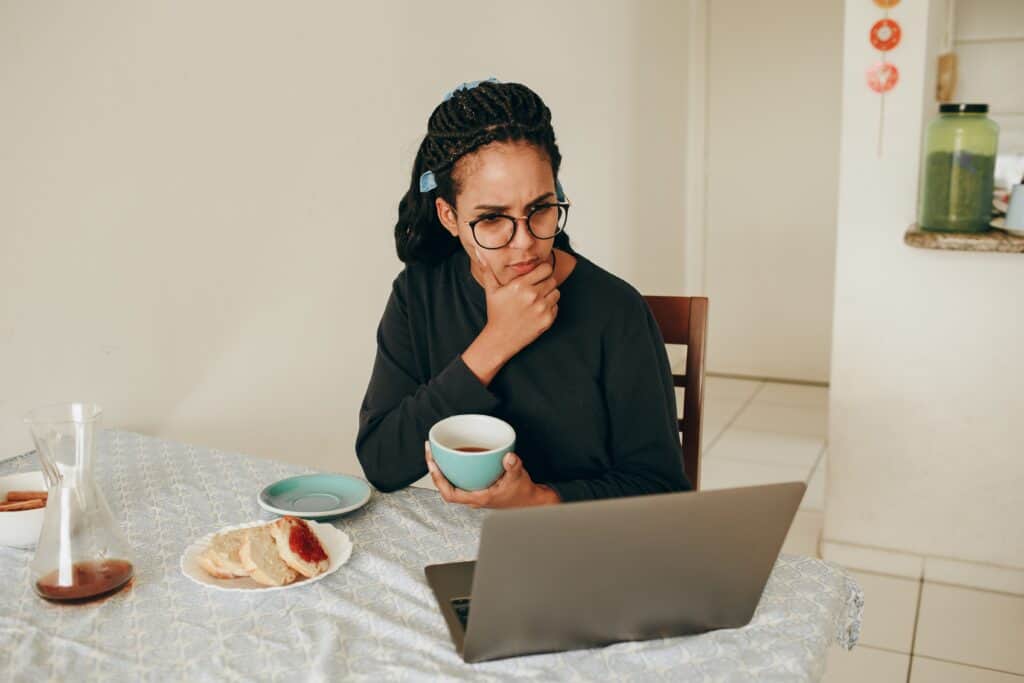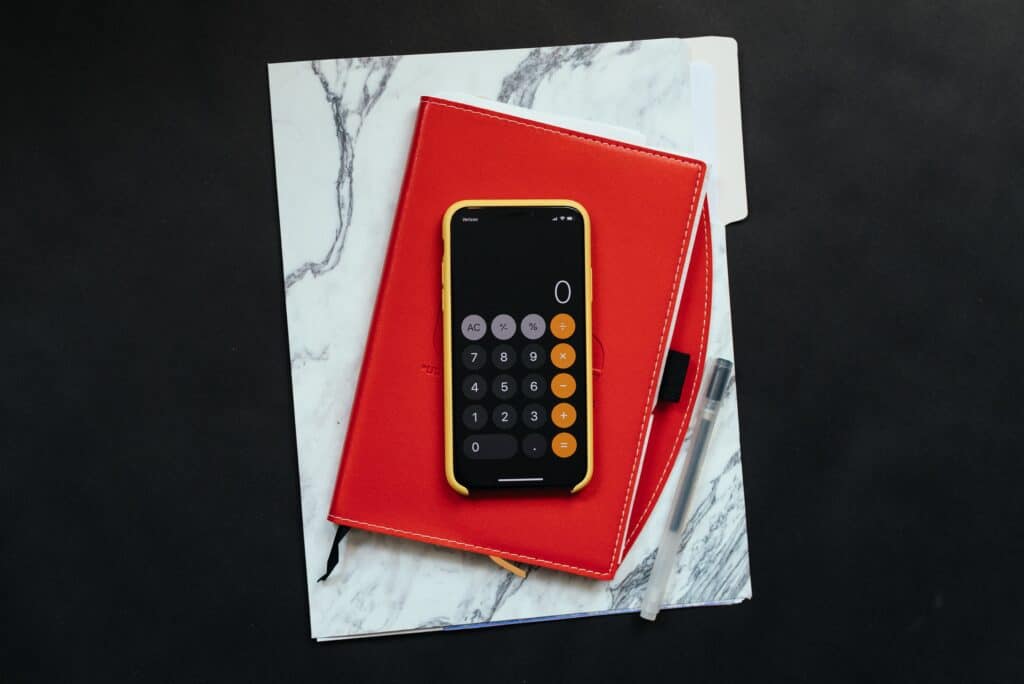
Not sure how to stop spending money, especially on things you don’t need or want? There are many ways to stop spending unnecessarily, but you should know a few things. Here are our top tips to help you stop spending money.
Why do I keep impulsively spending money?
There are many different reasons why you may be spending money impulsively.
The first would be that you spend based on your mood and emotions. Do you purchase new items to celebrate happy things, like a raise? Or, do you blow your money on food or feel-good items when you’re bored or sad?
If that’s the case for you, you can work on that. In some cases, therapy may be a great option. And you can also have a budget line for “fun” or “personal” money. That way, you don’t feel guilty for spending money, but you can also treat yourself. Just remember that once that money is gone, it’s gone!
Another reason you may be spending impulsively is because of a neurodevelopment disorder or mental health disorder. ADHD, depression, autism, and anxiety can all affect how you view and spend your money. For example, many people with ADHD note that they are “impulsive” — sometimes, this affects their spending habits.
If you haven’t been diagnosed, you should see your doctor as soon as possible to see if this could be a factor for you. If you’ve recently been diagnosed, don’t worry — you’re not alone. You may just need to tweak your budget to fit your needs. We suggest finding people with your disorder in the personal finance space and seeing what they recommend (plus, try it out!).
Related Video: 10 Money Habits That Will Keep You Broke
How do I train myself not to spend money?
If your emotions are the main reason you spend money impulsively, and you don’t have any illnesses or disorders that play a part, the next step to managing your money better would be to start training yourself not to spend money you don’t have or spending money on items you don’t need.
The best way to do that is to know yourself and your triggers. Again, understand and deal with those feelings if you tend to spend when you’re elated or sad. Emotions are a part of life, and having them is okay. But they don’t have to determine your budget.
Instead, try finding ways to “treat” yourself or care for yourself during these times. Can you go for a walk? Call a friend? Pull out a freezer meal you love to avoid cooking? Journal and get all of the feelings out? There are many ways to handle your emotions without impulsively spending.
Related Podcast: The Super Serious Guide to Modern Money Management
How can I save money and not spend it all?
Once you’ve started working on your impulsive spending, you may be looking to save that money. But there are a few ways to ensure that you’ll have money to save.
For one, have a separate savings account, and save money regularly. This could be once a week, once a month, or any time you get paid. But building the habit of saving helps make it easier, especially when you do it regularly.
Second, make your savings harder to tap into. Don’t connect your checking and savings account, and if possible, move your savings account to a new bank altogether. You can always set up money or bill transfers should you actually need the money, but that way, it’s not as easy to access for impulsive spending.
Related Video: 5 Money Mistakes to Avoid in Your 20’s
What is the 30-day rule?
Basically, the 30-day rule is a way to curb impulse buys, especially if you find yourself “adding to cart” or window shopping fairly often.
When you come across an item and decide that you want it, instead of buying it right then and there, make a note to buy it after a 30-day wait. If you see it online, add it to your cart and save it for later. After the 30 days are up (you can set up a calendar event for this), you can purchase the item without any guilt.
This rule works because usually, after 30 days, people realize that they didn’t want the item as they thought. And sometimes, people forget they wanted it in the first place! This can help you practice delayed gratification and ensure that you’re buying something you truly need and want, not just want at the moment.
Related Article: 8 Apps That Will Help You Manage Your Money Better
What are the biggest wastes of money?
Looking for some easy ways to stop spending money? Here are the biggest wastes of money that you should avoid at all costs;
- Fees from your bank or any institution that aren’t required
- Convenience shopping
- Insurance that you don’t need
- Subscriptions you don’t use
- Not comparing prices (online tools like Honey make this super easy!)
- Extended warranties
- Buying in bulk when you don’t need to
- Eating out excessively
- Bottled water
- Kcups or other coffee pods
- Name brand items when the store brand works just as well
As you can see, it’s not always the $5 lattes or avocado toast ruining your budget. These items can provide value in your life, especially if you can afford them, and they make you feel good about budgeting. But the above items are usually ways that corporations swindle you into paying more money when there are better, safer, cheaper, and more sustainable options.
How to stop spending money
Now that you know what can cause impulse spending let’s talk about how to stop spending money.
Know your why
Why do you want to save your money? Is it so you can build an emergency fund? Save for a downpayment on a house? Buy a new car? Whatever the reason, you need to have a reason why you want to stop spending money impulsively.
This way, you can resort to that why when you find yourself spending unnecessarily. Will those new pairs of shoes get you closer to your goal? Will that Amazon order cut into your savings rate? Having a why is helpful when figuring out whether something is worth your credit card number.
Know who you are
Do you enjoy luxury items? Or maybe you like getting a massage every now and then. Whatever your reason for wanting to treat yourself, it’s okay to do so! You should never feel guilty for spending money you worked for, ever. But, knowing where your values lie, you can make sure you have the money for them.
For example, if you don’t care about having a fancy or large apartment but love to travel, you can save money by living in a smaller space. The money you save can then go towards plane tickets or other travel expenses.
Life is all about balance. Knowing who you are and what you want can help you make better financial decisions and support your goals.
Related Podcast: The True Path to Financial Independence
Set up a realistic budget
Once you know yourself and your why, now is the time to set up a realistic budget. Your budget should never make you feel restricted or frustrated. Instead, it should be a way to lead you to your goals and help you spend your money on your own terms.
If you’re trying to curb your spending, set up a budget that still allows you to have fun money, eating out funds, or whatever else it is that you like to do. Take this money out in cash or have a separate account for it, that way, you don’t overspend but can still enjoy it guilt-free.
Related Article: 10 Ways to Simplify Your Budget
Resist sales
Is something really a deal if you didn’t need it in the first place? For example, if you spent $50 on an item that was on sale but didn’t need it, you didn’t save money. Instead, you spent $50 you didn’t need to spend.
Resist sales as much as possible unless you’re looking for a particular item. And make it easier for yourself by having a list of what you need or want, and then only buy that item (and that item alone) if you find it on sale!
Related Article: Grocery Shopping On A Budget (+ How To Save During Inflation!)
Practice delayed gratification
Next up, practice delayed gratification! Delayed gratification means resisting an impulse to take an immediately available reward in the hope that you’ll obtain a more valued reward in the future. In other words, avoiding that impulse purchase can mean you have a bigger emergency fund or more money to spend on vacation.
By practicing delayed gratification, you can rewire yourself to save first and spend later. And at the very least, you’ll learn not to spend money you don’t really want to spend.
Know your habits to make better choices
If you find yourself impulse spending during certain times, you can learn those habits to help you make better choices.
For example, if you tend to get take-out after working long hours, plan for those times and keep a stash of easy meals in your freezer. Or, if you know you always buy something when you get a sale email, send those emails to an email that you only check once a month. Knowing your habits can help you create new and better ones.
Related Article: Simple Ways to Have Fun on a Fixed Budget
How to stop spending money and save hundreds each month!
When you’re learning how to stop spending money, it can seem overwhelming at first. But with diligence and practice, you can curb impulse spending and save upward of hundreds each month.







